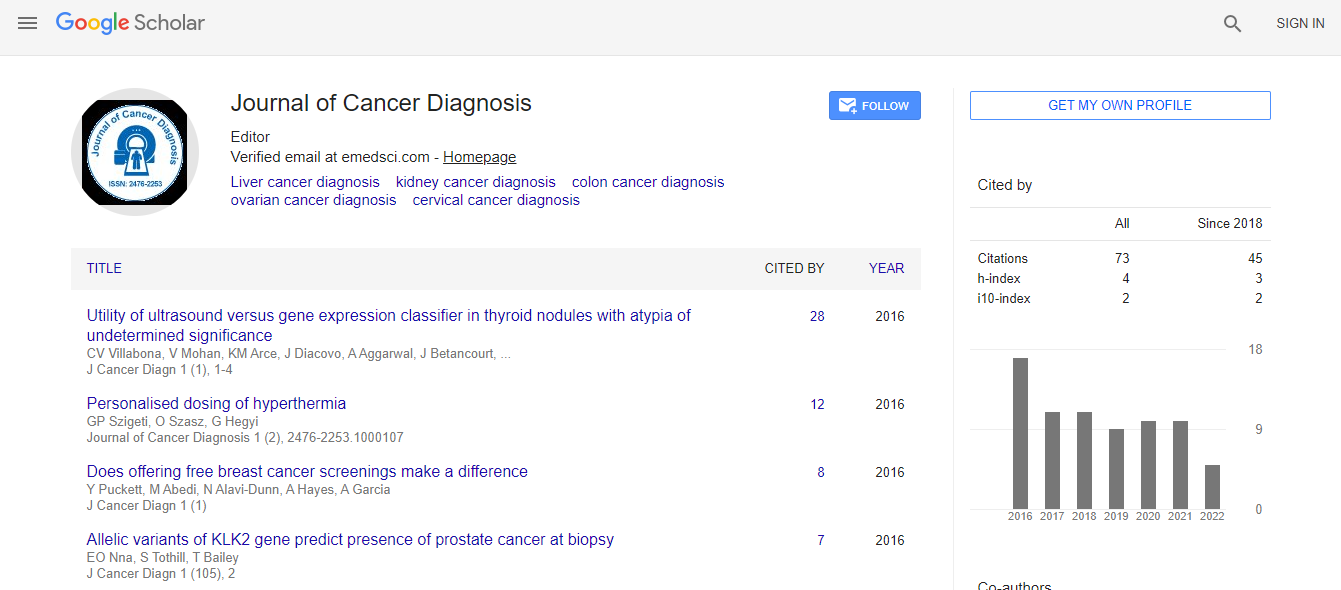Federated Learning Models for Privacy-Preserving Cervical Cancer Screening in Low-Resource Healthcare Systems
*Corresponding Author: Dr. Rina Mwangi, Department of Health Informatics, University of Nairobi, Kenya, Email: rina_m@gmail.comReceived Date: Mar 01, 2025 / Accepted Date: Mar 31, 2025 / Published Date: Mar 31, 2025
Citation: Rina M (2025) Federated Learning Models for Privacy-PreservingCervical Cancer Screening in Low-Resource Healthcare Systems. J Cancer Diagn9: 289.
Copyright: © 2025 Rina M. This is an open-access article distributed under theterms of the Creative Commons Attribution License, which permits unrestricteduse, distribution, and reproduction in any medium, provided the original author andsource are credited.
Abstract
Cervical cancer remains a leading cause of cancer mortality among women in low- and middle-income countries (LMICs), largely due to insufficient screening coverage and infrastructural limitations. With the increasing digitization of healthcare data and the rise of artificial intelligence (AI) in medical imaging and diagnostics, machine learning (ML) presents new opportunities for improving early detection and intervention. However, data privacy concerns and lack of centralized infrastructure pose significant barriers to traditional ML implementation. Federated learning (FL) offers a novel, privacy-preserving solution by allowing decentralized model training on distributed datasets without transferring sensitive patient data. This article explores the implementation of FL-based cervical cancer screening models in low-resource settings, examining their technical frameworks, privacy safeguards, benefits, challenges, and long-term potential for scalable, equitable care delivery

 Spanish
Spanish  Chinese
Chinese  Russian
Russian  German
German  French
French  Japanese
Japanese  Portuguese
Portuguese  Hindi
Hindi 